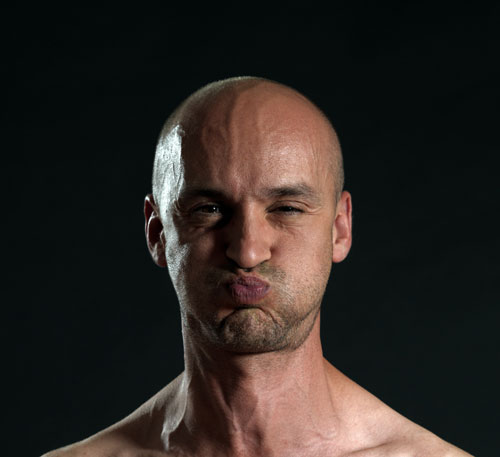Mikhail Karikis
Coined by critics a ‘sound alchemist’ (Le Monde), Mikhail Karikis has developed a vocabulary which fuses performance art and music. With classical music studies in his native country Greece, in Architecture at the Bartlett and in Fine Art at Slade School (UCL), Karikis’s interdisciplinary work is embraced by the art gallery and the concert hall. One aspect of his practice explores the voice as a sculptural material, exploiting its formal potential, while another challenges the relationship of the voice to the politics of the male body, masculinity and language. In his recent compositions, often called by Karikis ‘Vocal Impossibilities’, the vocalist faces a contradiction or an impossibility, and the struggle to overcome it becomes the performance.
Karikis’ collaborators include visual artists (Sonia Boyce, Zineb Sedira), choirs (Hilliard, Alamire), pop-musicians (Björk, DJ Spooky), fashion houses (Prada, Lanvin). His work is released by Sub Rosa, and has been shown at Tate, BAFTA, Nederlands Dans Theater, Milton Keynes Gallery and elsewhere.
esimorP (extract)
In this composition, Mikhail Karikis draws inspiration from oaths of secrecy practiced in the City’s financial businesses, and creates a work for a performer who appears in the role of a suited male City office-worker. The piece explores the idea of promising to keep one’s lips sealed by inversing the order of events, i.e. the performer has to promise but his lips are already sealed. Unable to open his lips to pronounce the word ‘promise’, the vocalist swells up with air, his face and neck change radically in shape and colour – in its struggle to find release, the voice subjects the body to dramatic disfiguration. Repeated attempts ‘puncture’ the seal of the lips to pronounce a noisy ‘p’. The composition continues to build up the word ‘promise’ when suddenly the performer, as if by recollection, begins to imitate the sounds of a malfunctioning tape machine modulating the pitch, direction and speed of the utterance ‘promise me’. This sheds different light on the demand to make a promise to the semi-mechanised ‘me’, uttered by the vocalist. It lets us speculate about who the owner of this demand, and what the circumstances of its disturbing internalization by the City-character might be.
